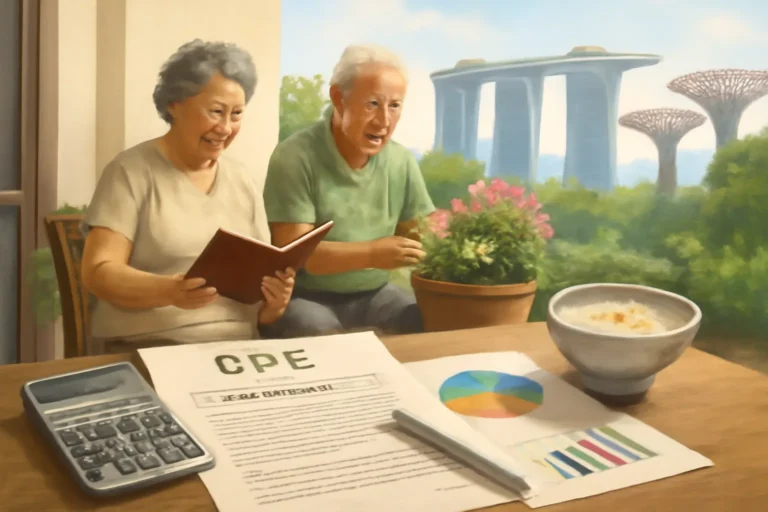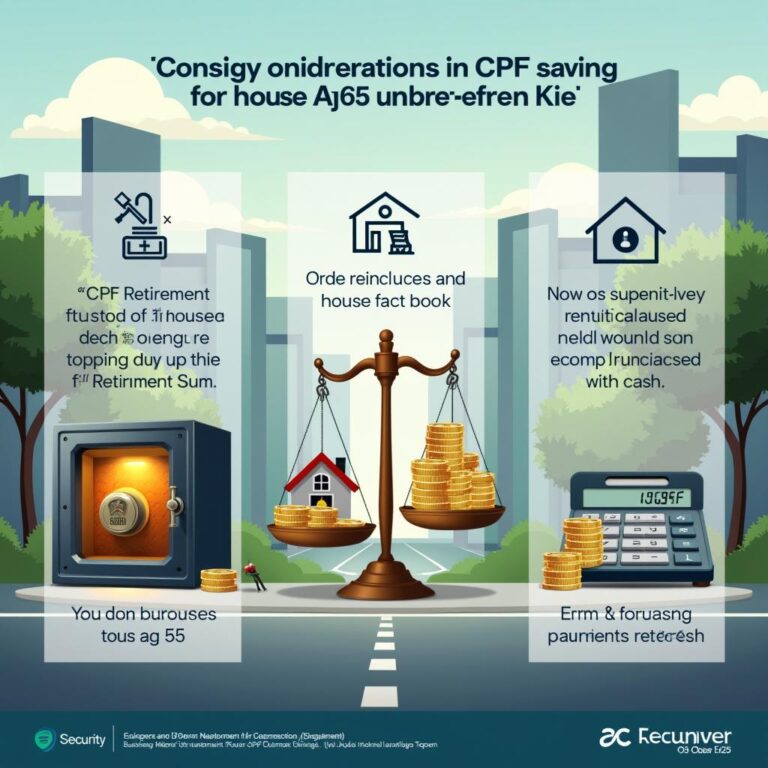Why Singaporeans Are Rethinking Property as the Cornerstone of Retirement Planning
Alright, let’s talk about something that’s been pretty much ingrained in the mindset of many Singaporeans: investing in property. For years, buying property has been the go-to move for a solid retirement plan. After all, owning a piece of real estate has always seemed like a safe bet—something tangible you can hold onto. But guess what? Recent data tells a different story.
Manulife Singapore recently conducted a survey that pulled in responses from over 1,000 folks across the city-state, digging into their thoughts on financial readiness for retirement. And the results? They’re revealing a shift that’s quite interesting: property’s appeal as a cornerstone for retirement plans is cooling off.
Breaking Down the Poll Results
It turns out that the old-school love affair with property is showing signs of fading. More and more people aren’t as confident about making property the centerpiece of their retirement strategy. Why the change? Well, the survey doesn’t give every nitty-gritty detail, but from what we can gather, several factors might be at play.
Pricey Market, Changing Priorities
First, the property market in Singapore has become pretty expensive and competitive. The dream of owning multiple properties or even one property that can serve as a reliable nest egg is less attainable for many. With skyrocketing prices, the barrier to entry is higher, which naturally makes people rethink whether this is the best route for retirement planning.
Coupled with that, there seems to be a shift in mindset among Singaporeans. More folks are becoming financially savvy and diversified in how they approach retirement planning. Instead of putting all their eggs – or bricks – into one basket, there’s growing interest in alternative investments like stocks, bonds, mutual funds, or retirement-specific savings plans. This diversification could be why fewer people are putting so much faith in property alone.
It’s Not That Property’s Dead, Just Not the Whole Picture
Let’s be clear: no one is saying investing in property is a bad idea. It’s just that it’s not the end-all, be-all anymore. The survey highlights a trend where property is becoming one part of a broader strategy rather than the single most important piece.
Also, factors like maintenance costs, taxes, and the hassle of managing rental properties can make property investment less appealing compared to other investment avenues that might be more hands-off and liquid. For retirees or those planning retirement, flexibility and ease of access to funds are huge considerations.
The Impact of Market Dynamics and Life Changes
Another angle to consider is how life changes and global economic shifts are reshaping people’s priorities. The pandemic, for instance, reshaped work, lifestyle, and financial priorities for many. People are thinking more about stability, emergency funds, and ensuring they have liquidity and accessible savings instead of overcommitting to one asset class.
Plus, the rise of alternative real estate options like REITs (Real Estate Investment Trusts) allows people to invest in real estate without the need to buy and manage physical property. This might be influencing the traditional property investment choices people make.
What This Means for Retirement Planning in Singapore
If you’re in the midst of planning your retirement—or just starting to think about it—the takeaway here is clear: don’t just rely on property. Sure, it can be a key part of your portfolio, but it’s probably wise to diversify.
Financial experts often recommend building a balanced mix of investments to spread risk and improve potential returns. This includes a combination of property, stocks, bonds, savings plans, and other assets tailored to your personal risk tolerance and goals.
Getting Expert Advice and Staying Informed
It’s also crucial to keep up with changing trends and market conditions. What worked a decade ago might not be the best strategy today. Chatting with a financial advisor can help you understand the best options for your unique situation and how to build a retirement plan that’s not just ambitious but also realistic and adaptable.
Final Thoughts
In the end, the survey from Manulife Singapore is a helpful reminder that traditional wisdom doesn’t always apply forever. The real estate market might still be a pillar of many investment strategies, but Singaporeans are clearly shaking things up—and that’s a smart move. Embracing a more varied approach to retirement planning can definitely pave the way for a more secure and comfortable future.
So if you’ve been counting on property as your retirement golden ticket, maybe it’s time to take a fresh look at your game plan. The landscape’s evolving, and with the right mix of investments, your golden years could be just as bright—if not brighter!







